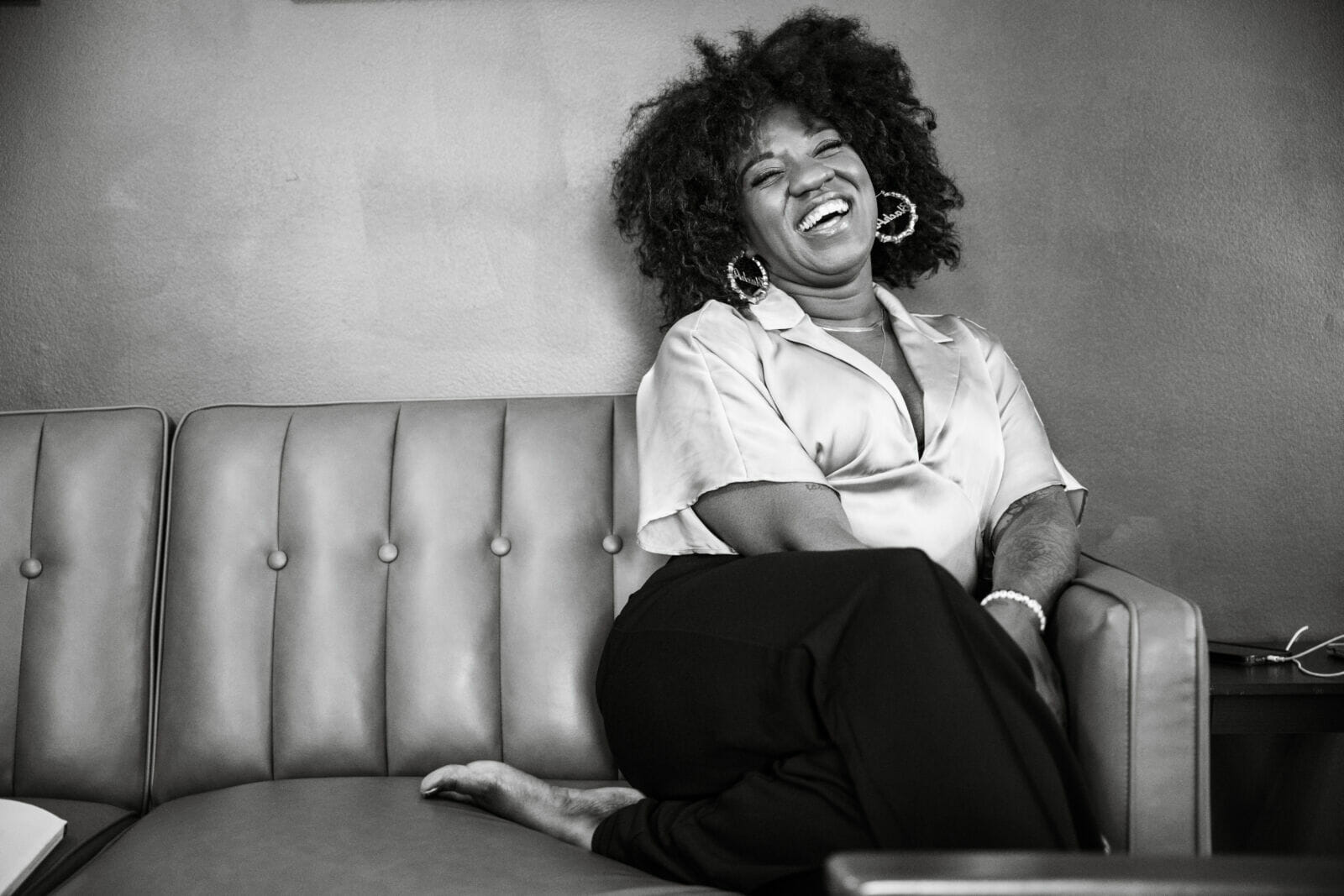Black History Month (Feb. 1 – March 1) observes, honors and educates people on prominent Black figures and events throughout history. But it also provides an opportunity to recognize and celebrate current leaders and change-makers within Black communities. Nikki Porcher, founder of Buy From A Black Woman, has cultivated a resource that provides education, empowerment and inspiration for Black woman entrepreneurs. Additionally, part of Porcher’s advocacy extends to educating how people can best support Black-woman-owned businesses. To learn more about Porcher’s passion and drive to foster Black woman businesses, their growth and yield more opportunities and how you can better support these businesses, take a look at our Q&A below.
READ ALSO: 6 change-makers to know for Black History Month
Question: Can you share a bit of your journey and passion for helping people navigate how to best support Black women and Black women’s businesses — when did you discover this passion and how has it evolved over time?
Nikki Porcher: I have a background in non-profits, so advocacy work isn’t new to me, but a couple of years ago I was traveling for a half-marathon and I missed my flight. I was upset, so I decided to do some retail therapy and I ended up at a marketplace with all local small businesses brands. When I looked around though, I realized that I was the only Black woman in the room.
And this was in Atlanta, so it prompted me to take action. I started looking into how to actually buy products from Black women, which led to me blogging about it and eventually founding a nonprofit, Buy From A Black Woman.
Buy From A Black Woman has since evolved into a supportive partner and community for Black women business owners. We provide our founders with funding and the education and mentorship they need to utilize the funds in a meaningful way, we make it easier for consumers to find them online via our business directory, and we promote them and highlight their work through our production house and BFABW.tv. We advocate for them at the policy and retail level, helping them secure shelf space with major retailers and get their brands in homes across the world.
Question: For those who want to support a Black-woman-owned company, but aren’t sure where to begin, how would you advise them?
NP: Pick a household item to replace, something you use every day like soap, your morning coffee or tea, or even toothpaste, and make a commitment to switch to buying that from a Black-woman-owned brand. You can have a real impact by becoming a long-term customer and buying from them regularly. Supporting means being consistent. We have an online directory with hundreds of verified businesses that you can use to start your search. Start there.
Question: In general, what needs to happen for improved awareness of supporting Black-woman-owned businesses?
NP: More people need to buy and support Black women business owners.
Black women business owners don’t have the same access to funding, we don’t get the operational support and sponsorship that our counterparts do. Equitable partnerships are difficult to come by. We face racism and gender bias at every level of business, which makes creating our products and services more complex and more often than not, more expensive. And because of this, only 3% of Black-women-owned businesses make it to maturity. There are a lot of stories about how we’re the fastest-growing demographic of entrepreneurs and there are 2.7 million Black women-owned businesses. Those stories are great, but giving a more complete picture that addresses the challenges as well would invite conversation around practical support and what you as an individual can do in your daily life to be a part of the solution.
Question: Which Black woman in your life do you most admire and why?
NP: I admire my Grandmother, Idella Doe Slater, the most. She’s always been an inspiration to me and one of my biggest supporters. As the eldest daughter in the family, she had to drop out of school in eighth grade to care for her younger siblings. But despite this, she became a sought-after seamstress, baker and chef. And in her early 30s after becoming widowed, she went out and got her driver’s license, bought her first car, and got a job as a school bus driver to support her family.
Question: Do you have a favorite Black-woman-owned business in Arizona?
NP: Now, I can not answer that question! You are trying to get me in trouble. They are all my favorites!
Question: What other ideas, initiatives, and/or suggestions can you offer to anyone seeking the most sustainable means of supporting and buying from Black women businesses?
NP: Another meaningful way of supporting Black women-owned businesses is to support the organizations that help them. Organizations like Buy From A Black Woman specifically focus on helping Black-women-business owners.
And the donations and support we receive helps us carry out our mission. In the last 12 months alone, we put 52 Black-women-owned brands on H&M shelves across the country, hosted 32 workshops, collaborated with five founders to create limited edition products, and we directed and produced a documentary to raise awareness and highlight the work of these Black women.
Our work helped drive more than $2.7 million in revenue, which goes to show what’s possible when Black women are fully supported. When you support a Black woman business owner, you support a whole community. Buy from a Black woman.




